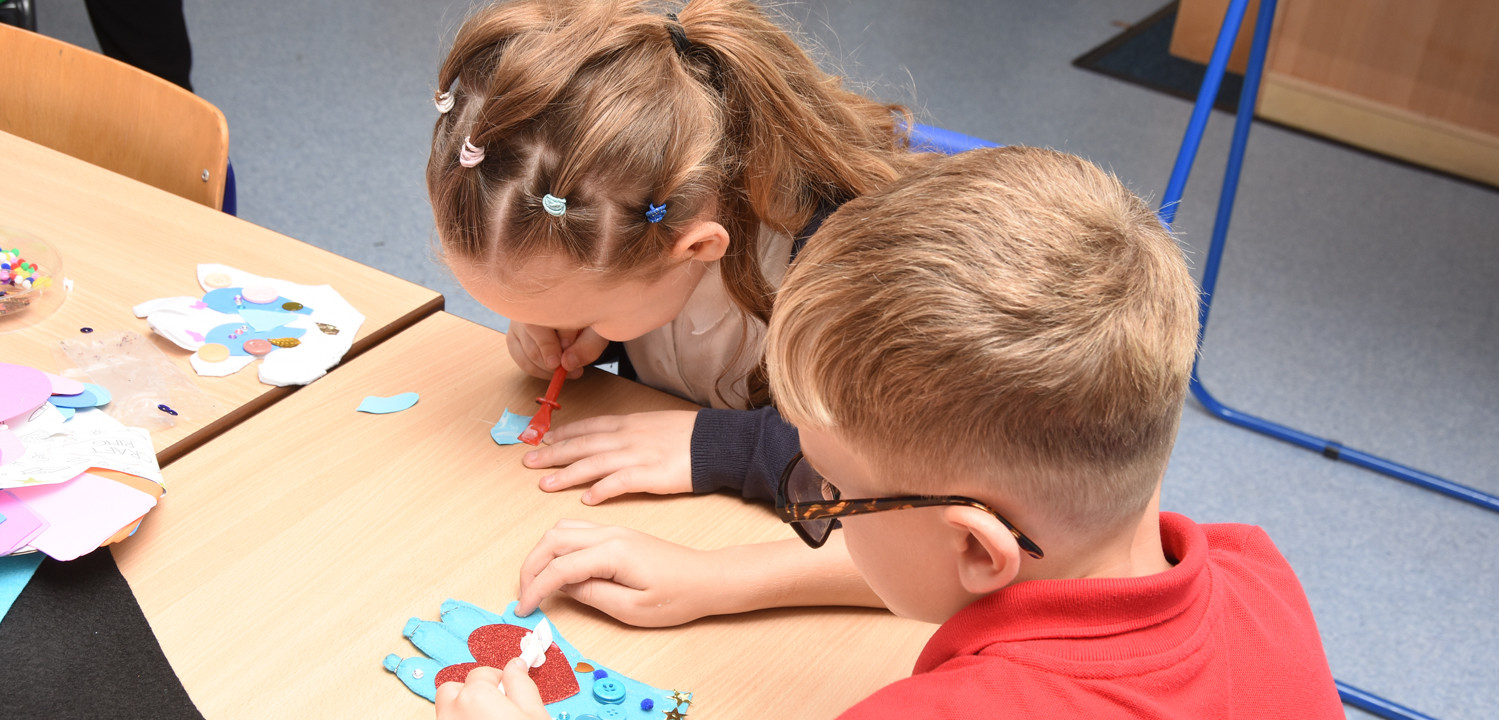British Values
The actual teaching of ‘British Values’ is not a separate lesson or series of lessons rather it is a golden thread across our curriculum and refelcted upon whenever opportunities arise.
At Over Hall we take very seriously our responsibility to prepare children for life in modern Britain. We ensure that the fundamental British Values are introduced, discussed, taught and lived out throughout our school.
All curriculum areas provide a vehicle for furthering understanding of these concepts and, in particular our R.E, S.M.S.C, RSE and P.S.H.E lessons provide excellent opportunities to deepen and develop understanding. Children embrace these concepts with enthusiasm and demonstrate a good understanding of their application to their own lives.
Staff make considerable efforts to ensure children have exposure to a wide experience beyond their local community, during which these concepts are shown: through for example; sporting events, residential visits to outdoor centres and through visiting speakers from all faiths and groups. Their strong-rooted values-based understanding gives them an excellent platform for embracing difference.
As a result, our children are able to share each of the fundamental British Values and demonstrate what this means at Over Hall.
Mutual respect & the tolerance of those with different faiths & beliefs
Respect is a fundamental value, around which pivots much of the work of the school. We pay explicit attention to this as part of our R.E, P.H.S.E, and S.M.S.C curriculum. Activities include SEAL lessons, Collective Worship, RE curriculum, learning walks for behaviour and behaviour for learning, links with local faith leaders and visits to places of worship.
Over Hall is situated in an area which is not greatly culturally diverse, therefore we place a great emphasis on promoting diversity with the children. Assemblies are regularly planned to address this issue either directly or through the inclusion of stories and celebrations from a variety of faiths and cultures. Our RE and PSHE teaching reinforce this. It is also heavily supported through our strong link with Delhi Public School, Bangalore and the reciprocal visits.
Children learn that their behaviours have an effect on their own rights and those of others. All members of the school community treat each other with respect. Children through the year groups have the opportunity to apply for various roles and responsibilities, many of which involve supporting the younger children in school - reading buddies, playground buddies, peer mentors, librarians, wellbeing workers, junior safety officers and sports ambassadors.
As a result …
-
Children can articulate why respect is important; how they show respect to others and how they feel about it for themselves.
-
Children’s behaviour demonstrates their good understanding of this value in action.
-
Children are able to talk about the different faiths and cultures they learn about, ask questions and show tolerance and respect for diversity of faiths and religions.
Democracy
The children at Over Hall see democracy borne out in a whole variety of ways and see this as being an essential component of a successful working team. Democracy is a school value that children meet when discussing respect and fairness and as part of the school council election process. This is evidenced through School Council minutes and records, SEAL lessons, Collective Worship, RE, Learning walks for behaviour and behaviour for learning, pupil voice as they are consulted in light of changes in school and wider as part of the Pupil Forum, termly questionnaires, pupils voting for change or roles alongside children applying for various roles in the school and sometimes sitting interviews! Over Hall is part of a group of schools who employ strategies of children leading whole school evaluation from attitudes towards learning, school vision, writing and more recently promoting life skills.
As a result …
-
Children are able to work co-operatively in pairs and groups as well as in whole class situations.
-
They understand about turn taking and respecting the views of others.
-
Children in KS2 in particular are using the language of respect, e.g. I agree with/ I don’t agree with…’
The Rule of Law
The importance of Laws, whether they be those that govern the class, the school, or the country, are consistently reinforced throughout regular school days, as well as when dealing with behaviour and through school assemblies. Pupils are taught the value and reasons behind laws, that they govern and protect us, the responsibilities that this involves and the consequences when laws are broken. Children have the opportunity to learn more about the effect that political decisions have on our local community and even take part in local governance. Where appropriate, visits from agencies such as the NSPCC, the Police and Fire service are organised to address topical issues.
As a result …
-
Children are able to articulate how and why we need to behave in a particular way in school and demonstrate they understand and can abide by these values.
-
They are able to discuss and debate philosophical issues in relation to these
Individual Liberty
Our SEAL discussions include discussion about the self: e.g. self –respect and self-worth in relation to the individual value so that children see that they are important in their own right. Children are strongly encouraged to develop independence in learning and to think for themselves. Respect is a school value that is discussed deeply, starting with self-respect and covering respect for family, friends and other groups; the world and its people; and the environment. They are also taught the importance of respect for the fallen through work on Remembrance Day and those who suffer loss or are less fortunate than themselves through support of charities across the year.
Within school, the children are actively encouraged to make choices, knowing that they are in a safe and supportive environment. As a school we educate and provide boundaries for them to make choices safely, through provision of a safe environment and empowering education. The children are encouraged to know, understand and exercise their rights and personal freedoms and advised how to exercise these safely, for example through our e-safety and PSHE lessons.
As a result …
-
Children understand about the importance of accepting responsibility and of their right to be heard in the school.
-
They are consulted on many aspects of school life and demonstrate independence of thought and action.
-
They take part in Remembrance Day and can articulate why we respect those who sacrifice their life for us in war.





